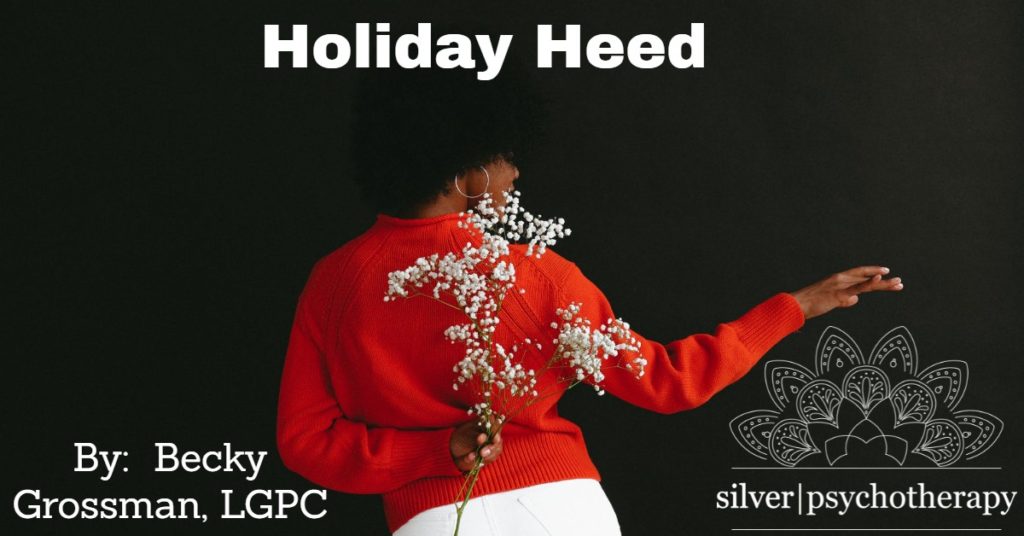Warning: The next few weeks may be stressful and NOT relaxing!!! The holidays can be a joyous, and festive time with loved ones, near and far. This is often a special time to spend quality time with family and friends. We impart the joys of the season to younger generations, learn about other cultures in our community, and enjoy our favorite holiday traditions. Many of us are reconnecting with loved ones in person after a very difficult couple of years through the COVID-19 pandemic and a uncertain future with Omicron looming.This holiday season presents unique challenges. In addition to navigating the more common challenges of changing in schedules, travel logistics, and extensive holiday preparations, many individuals and families are dealing with painful losses (e.g., death of loved one, end of a relationship, loss of employment, collective losses felt during the pandemic, etc.), resurfacing painful memories or family trauma, and/or hurtful family dynamics. Others experience this holiday season as the most painful time of year and may not have loving family or friends to spend the holidays with. As if all of that weren’t enough, we are still in the midst of the COVID-19 pandemic and, while we have more protections available than in 2020, many families are navigating differing comfort levels for contact and are feeling the pressure to accommodate conflicting preferences. There is a lot to be mindful of this holiday season! While certain circumstances may be painful and beyond our control, we can choose to empower ourselves and make the decisions that best align with our truth, values, and needs. Below are some strategies to help you reflect and approach the holiday season with awareness and compassion.
- Seek support. If you are struggling with trauma, abuse, grief, depression, anxiety, or other aspects of your mental health, please seek support from a mental health professional. The support we receive through psychotherapy can be one of the best investments we make in ourselves and can be a powerful start or continuation of our healing journey. When possible, also seek support from a trusted loved one. We all benefit from healthy connections to others.
- Take care of your body. During the holiday season, many are traveling and experiencing disturbances in their daily routines. This often causes disruptions in sleep schedules, eating habits, exercise regimens, mindfulness practices, alone time to recharge, etc. Reflect on what daily practices or other aspects of your routine help you feel your best and incorporate them into your holiday plans. Take the time to regularly check in with your body and what it needs. You may notice you crave more rest, certain foods, or hydration. If we can attend to our body’s needs, iit will help minimize any stress your body may feel as you settle back into your routines toward the end of the holiday season.
- Set boundaries as needed. This can be a difficult time of year for many individuals and families. Family gatherings often provoke old communication patterns and relational dynamics that can be hurtful, or retraumatizing. While it can feel challenging to set boundaries with family or friends during the holiday season, doing so is an act of self-care. If setting or enforcing a boundary presents you with a difficult decision, try to consider which course of action will give you the most peace and/or best aligns with your needs and priorities.
- Consider what gatherings, traditions, and other activities are most important to you and prioritize them. If you feel stressed or overwhelmed by conflicting events, consider ways to lighten your social calendar by respectfully declining an invitation, attending events for a shorter duration, and/or making alternate plans after the holidays.

